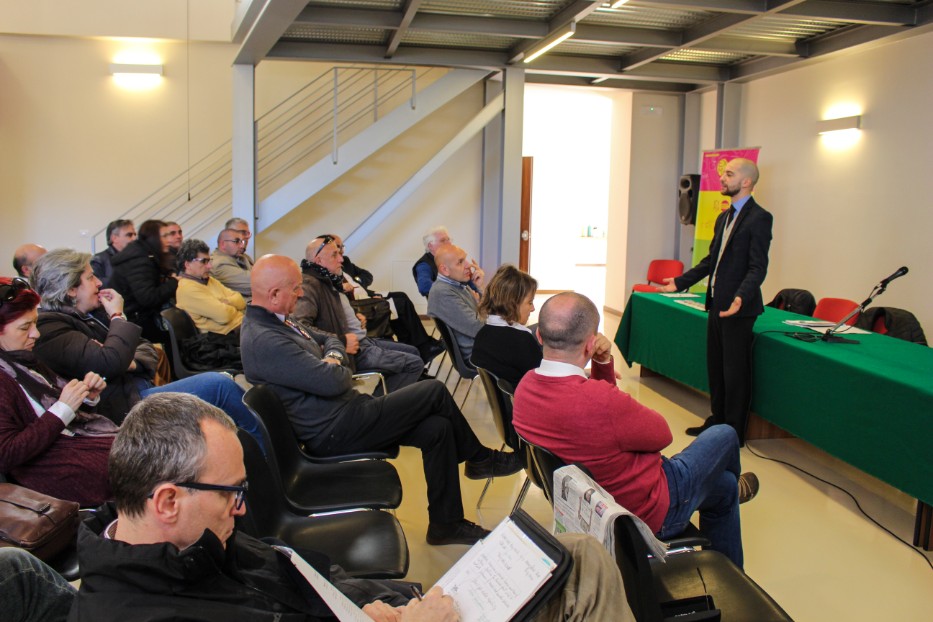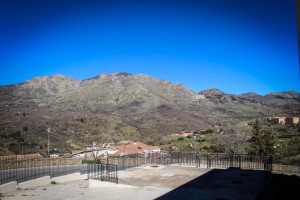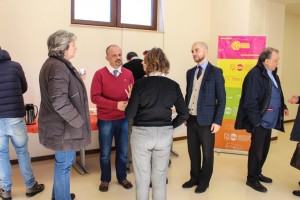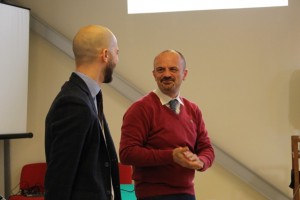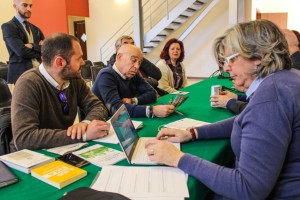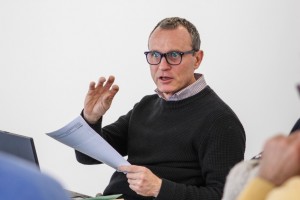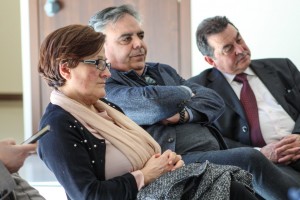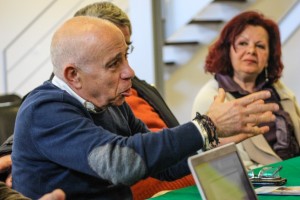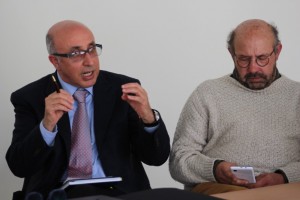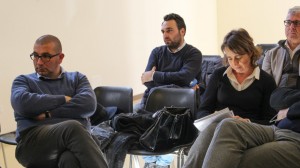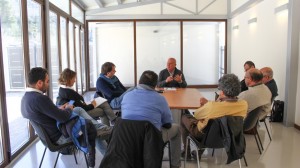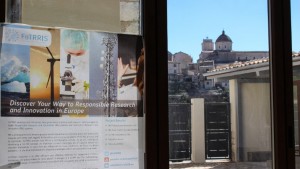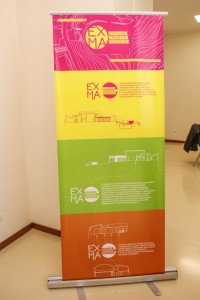The second workshop in Italy was held on 3 March 2017 at EXMA, a local meeting space, in Petralia Sottana in the Madonie region.
The premises of the former Municipal Slaughterhouse which hosted the meeting have become the site of Officine Creative Madonie (EXMA), with micro-ateliers equipped to support prototype and production processes for start-ups and professionals operating in the field of energy, agriculture and food supply chain, digital media and other areas with a high territorial impact.
The workshop objective was to design a future scenario to be achieved using as leverage the potential identified (in terms of governance, innovation, community resilience, efficient use of resources, cooperation) and removing existing barriers, and to proceed to an inventory of solutions and innovative activities and to the identification of priority interventions to be launched.
25 stakeholders participated in the workshop and the discussions about what should be done to bring change, making use of potential leverages and overcoming constraints, took place in three groups of about 5/7 people. Groups’ work was facilitated by three moderators.
Group 1 co-created ideas to address: How to achieve the citizens’ engagement towards responsible behaviour in the energy field (from economic incentives to relational benefits) and to co-design sustainable and responsible local development, on an ongoing basis and in a systemic view?
- Goal: Work plan for an awareness action and internalisation of functions to be carried out on a territorial basis – Submission of a Living Lab proposal within the 11th Wave ENoLL membership April 2017.
Group 2 co-created ideas to address: How to match effectiveness of innovation products and services with the social spill-over effects in terms of quality of life improvement?
- Goal: Scale-up of niche innovation on broader territorial impact, new ideas for RRI projects relevant to the area.
Group 3 co-created ideas to address: Participatory governance and business models to maximise the local effects of energy transition.
- Goal: Identify the most appropriate business models for citizens’ shareholding (participatory foundation, short networks and local supply chains, ESCO, social enterprises, sharing/circular economy).
All groups were involved in an active co-creation process using techniques such as debates, group work and brainstorming. The last stage of the workshop was to present the ideas to all participants during the final panel session. As the goal of the TE according to FoTRRIS should be a project proposal, and based on the needs of the local community and governance, participants agreed that the topic of Group 1 was the most relevant and could be realised in a project idea in a shorter timeframe.
Comments are closed.


